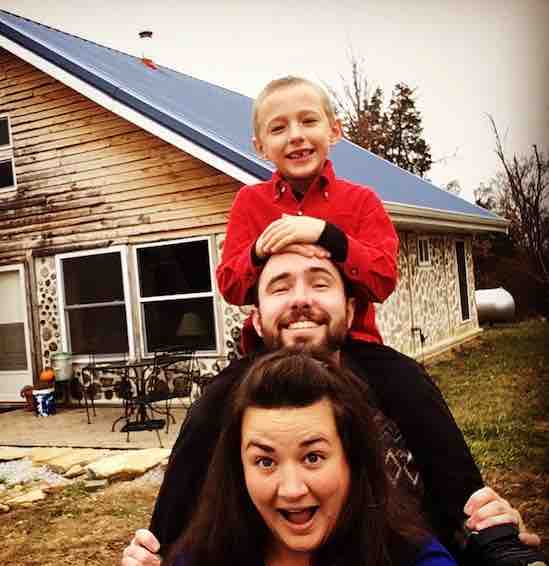
A Kentucky couple, who have been off-grid for more than five years, have set up a website to discuss the lifestyle.
Mark and Emily McCafferty tell their story on AccidentalHippies.com. The couple bought 16 acres of land and built a nearly 1,200-square-foot house that uses a combination of energy sources, including solar panels, a radiant heat system, a wood stove and propane. The house also features a rainwater catchment system.
According to a study by outdoor services provider LawnStarter, the Bluegrass State was the top state in America for living off-the-grid, which is defined as having a home that’s not connected to a utility company or co-op for a power source.
Kentucky ranked well across the metrics, LawnStarter said in a release. Besides having laws allowing for an off-the-grid lifestyle, the state received top marks for the number of rural health clinics per 1,000 square miles. According to ruralhealthinfo.org, the state has 252 such clinics
Other strengths included the state’s cost of living and its high marks for solar power potential, a temperate climate and sufficient precipitation.
Off-the-grid lifestyles are gaining in popularity. A 2019 study by Accenture noted that in some markets, residential and commercial demand for solar panels could top 15% within the next 15 years.
However, according to the experts, the lifestyle is not for everyone.
“In short, be ready to devote 100 percent of your days to your lifestyle,” said Gabriel Durham, the sustainability coordinator for the University of Houston’s Office of Sustainability. “Video games become farming, work commutes become hand-washing laundry, going out to see people becomes chopping firewood.”
Emily McCafferty said in a blog post on the site that living off the grid does not mean disappearing from society altogether. Instead, for them, it’s more about being mindful of the footprint they’re creating.
She states on her blog that people who may be interested in living off the grid should start creating self-sufficient habits in their current residence.
“Learn how to bake bread, mend clothes, can food, wire circuits, build from scratch, and so on,” she wrote. “There are hundreds of great homestead skills you can learn right where you are. The more prepared you are going into an off-grid building project, the better off you’ll be.”